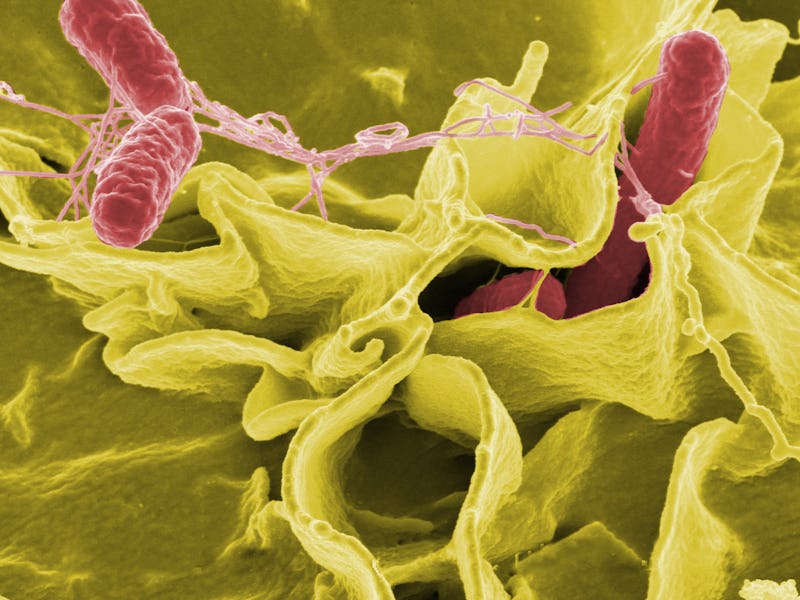CDC Announces 40 People With Food Poisoning Linked to Kratom in 27 States
Doctors report no deaths so far.

Kratom, the plant-based drug that the U.S. Food and Drug Administration recently declared an opioid, could pose a risk that most purchasers never imagined. On Friday, the U.S. Centers for Disease Control and Prevention announced that 40 people in 27 states have become ill with food poisoning that’s been traced back to kratom.
The therapeutic potential of the drug is hotly debated, with some doctors saying it could help chronic pain patients and people addicted to opioids, while the FDA warns that it’s not a safe alternative to opioids. The latest news from the CDC suggests that the drug, which comes from the tropical Asian evergreen shrub Mitragyna speciosa, could pose a different threat entirely.
Lab tests revealed that the people affected by the multi-state outbreak were exposed to Salmonella I 4,[5],12:b:-, a recently-emerged variety of the well-known bacterial food-borne infection that’s most commonly associated with eating raw or undercooked chicken and eggs.
Kratom is an evergreen shrub, a member of the coffee family, whose leaves can be made into a tea, ground up and encapsulated as pills, or reduced into a potent extract.
Salmonella causes about 550 deaths per year in the U.S. and is one of the most common culprits in bacterial food poisoning. According to the CDC’s most recently available numbers, 45 percent of the people infected with the illness by consuming kratom have been hospitalized, but none of the patients have died.
“Seventeen (71%) of 24 people interviewed reported consuming kratom in pills, powder, or tea. Most people report consuming the powder form of kratom,” report CDC officials. Kratom can also be sold as an extract.
So far, doctors have not been able to trace the outbreak back to any particular brand, manufacturing facility, or retailer. The patients purchased their kratom from various places, including retail stores and online sellers, which suggests that the outbreak may not be limited to any particular supplier, especially given the widespread geography of this multi-state outbreak.
“Because no common source of Salmonella-contaminated kratom has been identified, CDC is recommending against consuming any kratom,” reads the CDC’s report.
That being said, if you do insist on consuming kratom, you should know that the U.S. Department of Agriculture recommends cooking foods with Salmonella contamination risk to 145-160 degrees Fahrenheit. Therefore, your best bet is to make the kratom in a tea and boil it for at least three minutes after adding the plant material to the water. That being said, the absolute safest route is not to consume it at all, especially while the current marketplace is contaminated.